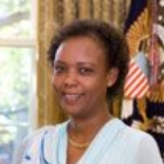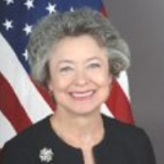Burundi
Like its central African neighbor, Rwanda, Burundi is populated almost entirely by the Hutu and Tutsi ethnic groups. But unlike its more infamous neighbor, which garnered worldwide attention in 1994 due to the genocide of hundreds of thousands, Burundi has not received the same kind of media attention. However, that does not mean there hasn’t been serious ethnic bloodshed between Hutus and Tutsis. For the past two decades, thousands have been killed by a serious of clashes over control of the country’s government. The worst started in 1993, prompting other African nations to intercede to stop the ethnic fighting and broker a power-sharing agreement between tribal leaders that continues to hold today. Hutus represent the majority of Burundi’s citizens (84%), but Tutsis have managed to ascend to power despite their small numbers. In some instances, Tutsi leaders rose through military coups—a frequent occurrence in Burundi during the latter 20th Century. Another frequent occurrence is human rights abuses, which continue to plague the populace.
Burundi has traditionally been governed by a king (mwani), presiding over an aristocracy (ganwa). The aristocracy owned most of the land and required a tax from local farmers and herders who used the land. Members of the royal class came primarily from the Tutsi ethnic group.
The United States first established diplomatic relations with Burundi in 1962, when Embassy Usumbura (now Bujumbura) was established.
Since the unrest and violence in the 1980s and 1990s, the United States has worked to establish a long-lasting democratic regime in Burundi and help sustain economic development. The US also seeks to strengthen reconciliation among the Hutus and Tutsis and to facilitate peace. In support of these goals, the United States supported the Arusha peace process, providing financial support through contributions to a UN peacekeeping force established in 2004.
The US imports few goods from Burundi. The largest import from Burundi is green coffee, which dropped from $5.8 million in 2003 to just $186,000 before rising again to $4.3 million in 2005. In 2007, the figure stood at $1 million, showing another decrease.
Burundian Expulsions, Congolese Refugees Attacked
(Afrol News)
(Afrol News)
Burundi’s human rights record remains poor, according to the State Department. Despite improvements in some areas, government security forces continue to commit numerous serious human rights abuses. Members of the FDN, the police, and the National Intelligence Service (SNR) were responsible for killings, torture, and beatings of civilians and detainees (including suspected FNL supporters), although there were fewer such reports than in the previous year. There were isolated reports that security forces raped women and young girls. Impunity and harsh, life-threatening prison and detention center conditions remained problems, and reports of arbitrary arrest and detention continued. Prolonged pretrial detention, lack of judicial independence and efficiency, and rampant judicial corruption continued. The government continued to hold some political prisoners and political detainees. The government restricted freedom of assembly and association. The government did not tolerate direct criticism of the president and journalists continued to exercise self-censorship. Security forces continued to harass members of the opposition. Societal violence and discrimination against women and trafficking in persons remained problems.
 Niyuhire, Angèle
Niyuhire, Angèle
- Table of Contents
- News
- Overview
- Basic Information
- History
- Newspapers
- History of U.S. Relations with Burundi
- Current U.S. Relations with Burundi
- Where Does the Money Flow
- Controversies
- Human Rights
- Debate
- Past Ambassadors
- Ambassador to the U.S.
- Embassy Web Site in the U.S.
- Comments
- Leave a comment
U.S. Ambassador to Burundi

President Obama has nominated an international development expert to be the next ambassador to the central African nation of Burundi, one of the world’s poorest countries. Dawn M. Liberi, a career member of the Senior Foreign Service, has specialized in sub-Saharan Africa for the U.S. Agency for International Development (USAID), although she the past few years she has been posted to the hot spots of Iraq, Afghanistan and Libya. If confirmed by the Senate, Liberi would succeed Pamela J. H. Slutz, a career Foreign Service Officer who was ambassador to Burundi from November 2009 to September 2011. Since then, Sam Watson has been running things as chargé d’affaires ad interim.
Born in 1954, Liberi earned a Bachelor’s Degree from Hampshire College in 1976 and an M.P.H. from the University of California at Berkeley in 1979. In 2005, she told a local journalist that Hampshire’s “emphasis on hands-on learning gave her a firsthand look at the work, with internships at UNICEF in New York and visits to learn about the health care systems of Egypt and Holland.”
Liberi’s early career foreign postings included service as population, health and nutrition technical officer for USAID’s missions in Senegal and Niger from 1981 to 1987, and as USAID deputy mission director in Ghana from 1992 to 1994. In Washington, she served as USAID associate assistant administrator in the Global Bureau, Population, Health and Nutrition Office from 1994 to 1998.
She served as USAID mission director in Uganda, from 1998 to 2002, and in Nigeria, from 2002 to 2005. From 2005 to 2006, Liberi was the USAID mission director in Iraq. From 2006 to 2009, she was an executive civil-military counselor with USAID. From 2009 to 2011, she served as coordinator for the Interagency Provincial Affairs Office at the U.S. Embassy in Kabul, Afghanistan, and as senior civilian representative for the Combined Joint Task-Force 82 with the International Security Assistance Force Regional Command-East at Bagram Airfield, Afghanistan.
From 2011 to 2012, she served as the senior assistance coordinator at the embassy in Tripoli, Libya.
-Matt Bewig
Hampshire Grad Leads Iraq Effort, Alum to Direct USAID Work (by Tom Marshall, Daily Hampshire Gazette)
Testimony Before the Senate Committee on Foreign Relations (pdf)
morePrevious U.S. Ambassador to Burundi

Like its central African neighbor, Rwanda, Burundi is populated almost entirely by the Hutu and Tutsi ethnic groups. But unlike its more infamous neighbor, which garnered worldwide attention in 1994 due to the genocide of hundreds of thousands, Burundi has not received the same kind of media attention. However, that does not mean there hasn’t been serious ethnic bloodshed between Hutus and Tutsis. For the past two decades, thousands have been killed by a serious of clashes over control of the country’s government. The worst started in 1993, prompting other African nations to intercede to stop the ethnic fighting and broker a power-sharing agreement between tribal leaders that continues to hold today. Hutus represent the majority of Burundi’s citizens (84%), but Tutsis have managed to ascend to power despite their small numbers. In some instances, Tutsi leaders rose through military coups—a frequent occurrence in Burundi during the latter 20th Century. Another frequent occurrence is human rights abuses, which continue to plague the populace.
Burundi has traditionally been governed by a king (mwani), presiding over an aristocracy (ganwa). The aristocracy owned most of the land and required a tax from local farmers and herders who used the land. Members of the royal class came primarily from the Tutsi ethnic group.
The United States first established diplomatic relations with Burundi in 1962, when Embassy Usumbura (now Bujumbura) was established.
Since the unrest and violence in the 1980s and 1990s, the United States has worked to establish a long-lasting democratic regime in Burundi and help sustain economic development. The US also seeks to strengthen reconciliation among the Hutus and Tutsis and to facilitate peace. In support of these goals, the United States supported the Arusha peace process, providing financial support through contributions to a UN peacekeeping force established in 2004.
The US imports few goods from Burundi. The largest import from Burundi is green coffee, which dropped from $5.8 million in 2003 to just $186,000 before rising again to $4.3 million in 2005. In 2007, the figure stood at $1 million, showing another decrease.
Burundian Expulsions, Congolese Refugees Attacked
(Afrol News)
(Afrol News)
Burundi’s human rights record remains poor, according to the State Department. Despite improvements in some areas, government security forces continue to commit numerous serious human rights abuses. Members of the FDN, the police, and the National Intelligence Service (SNR) were responsible for killings, torture, and beatings of civilians and detainees (including suspected FNL supporters), although there were fewer such reports than in the previous year. There were isolated reports that security forces raped women and young girls. Impunity and harsh, life-threatening prison and detention center conditions remained problems, and reports of arbitrary arrest and detention continued. Prolonged pretrial detention, lack of judicial independence and efficiency, and rampant judicial corruption continued. The government continued to hold some political prisoners and political detainees. The government restricted freedom of assembly and association. The government did not tolerate direct criticism of the president and journalists continued to exercise self-censorship. Security forces continued to harass members of the opposition. Societal violence and discrimination against women and trafficking in persons remained problems.
 Niyuhire, Angèle
Niyuhire, Angèle
Comments
U.S. Ambassador to Burundi

President Obama has nominated an international development expert to be the next ambassador to the central African nation of Burundi, one of the world’s poorest countries. Dawn M. Liberi, a career member of the Senior Foreign Service, has specialized in sub-Saharan Africa for the U.S. Agency for International Development (USAID), although she the past few years she has been posted to the hot spots of Iraq, Afghanistan and Libya. If confirmed by the Senate, Liberi would succeed Pamela J. H. Slutz, a career Foreign Service Officer who was ambassador to Burundi from November 2009 to September 2011. Since then, Sam Watson has been running things as chargé d’affaires ad interim.
Born in 1954, Liberi earned a Bachelor’s Degree from Hampshire College in 1976 and an M.P.H. from the University of California at Berkeley in 1979. In 2005, she told a local journalist that Hampshire’s “emphasis on hands-on learning gave her a firsthand look at the work, with internships at UNICEF in New York and visits to learn about the health care systems of Egypt and Holland.”
Liberi’s early career foreign postings included service as population, health and nutrition technical officer for USAID’s missions in Senegal and Niger from 1981 to 1987, and as USAID deputy mission director in Ghana from 1992 to 1994. In Washington, she served as USAID associate assistant administrator in the Global Bureau, Population, Health and Nutrition Office from 1994 to 1998.
She served as USAID mission director in Uganda, from 1998 to 2002, and in Nigeria, from 2002 to 2005. From 2005 to 2006, Liberi was the USAID mission director in Iraq. From 2006 to 2009, she was an executive civil-military counselor with USAID. From 2009 to 2011, she served as coordinator for the Interagency Provincial Affairs Office at the U.S. Embassy in Kabul, Afghanistan, and as senior civilian representative for the Combined Joint Task-Force 82 with the International Security Assistance Force Regional Command-East at Bagram Airfield, Afghanistan.
From 2011 to 2012, she served as the senior assistance coordinator at the embassy in Tripoli, Libya.
-Matt Bewig
Hampshire Grad Leads Iraq Effort, Alum to Direct USAID Work (by Tom Marshall, Daily Hampshire Gazette)
Testimony Before the Senate Committee on Foreign Relations (pdf)
morePrevious U.S. Ambassador to Burundi








Comments